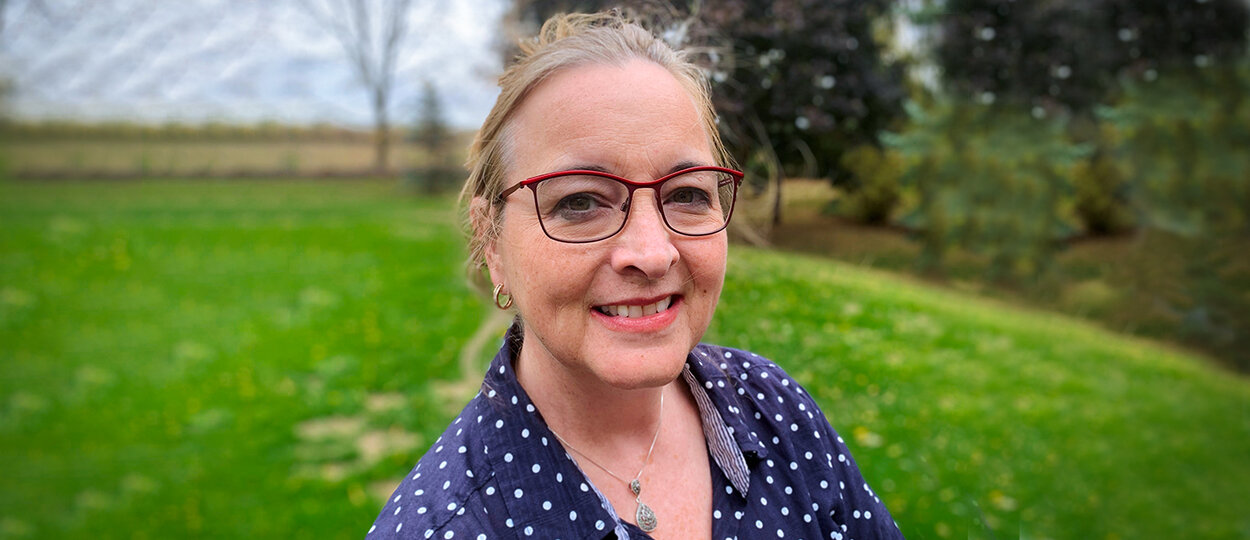Beth McMullen is one of two Leslie Dan Faculty of Pharmacy recipients of the University of Toronto 2020 Arbor Awards, the highest honour granted by the University that recognizes exceptional volunteers.
A Shoppers Drug Mart Associate since 1996, McMullen is a preceptor and mentor for up to 12 students each year during their Advanced Pharmacy Practice Experience (APPE) rotations.
According to Marvin James, Director of the Office of Experiential Education, McMullen is an exceptional mentor to students and “understands the value of working with others and leading by example.” She is also known for being devoted to her students and for offering exciting opportunities to explore clinical, operational and professional aspects of community pharmacy.
The LDFP Communications Office met with Beth to talk about how she became interested in pharmacy, the best part about being a community pharmacist, and what the Arbor Award means to her.
How did you become interested in pharmacy as a career?
I did well in chemistry and considered a career in chemical engineering, but realized that I didn’t want to work in a basement with chemicals for my entire career (no offense to the chemical engineers out there)! Pharmacy is a great marriage between chemistry and people skills.
I grew up in a rural town in New Brunswick where community was very important. I consider myself to be a people-person, which I think is key to a successful career in community or retail pharmacy.
In 1996, I was offered an associate role at a Shoppers Drug Mart pharmacy in Etobicoke so I decided to transition my career to Ontario.
What’s the best part about your job?
I’m privileged to follow people through the different stages in their life — often I’m the first person to learn my patients are pregnant — and I support them as their families grow and change, which is very rewarding to see. I also support many patients and families during difficult times, such as during a cancer diagnosis, treatments and sadly end of life.
What do you find surprising about community pharmacy?
I’m surprised that some patients have followed me to different pharmacy locations. I’ve worked at pharmacies in Etobicoke, Fairview Mall and Richmond Hill and built relationships with patients along the way. Some patients have followed me to these different locations, even though it’s a farther drive for them. It means a lot that my relationships with patients are this meaningful.
What role do you think pharmacists play in addressing the opioid crisis and reducing stigma?
Like anything else, anything that’s new is sometimes scary. I took courses to educate myself about opioids and related treatments (i.e. Suboxone, methadone and naloxone) and have met with a number of patients taking these medications.
Pharmacists who refill prescriptions without asking questions can be part of the opioid problem, but as a profession, we can also be part of the solution by helping patients along the road to recovery.
For example, one of my APPE students completed a health promotion project helping methadone patients with dental concerns. He created informational pamphlets on the importance of good dental hygiene when taking this medication (which can negatively effect teeth), and we provided them to patients along with a toothbrush and hygiene kit.
Why is it important for you to mentor students? Is there any advice that you like to give?
I had a great mentor who invested in me and I also want to give students a great experience. When I hear stories of student progressing in their careers, many becoming pharmacy managers, I love hearing about their success and take a lot of pride in it.
The advice I like to give students is to look at the big picture. Failure will happen, but don’t let it consume you. I share that I failed the PEBC exam the first time I wrote it and it had no impact on my career trajectory. Resilience in adversity is important.
Why do you continue to be a preceptor?
I’ve had more than 50 students come through my pharmacy as part of their APPE rotations. I always learn as much from them as they do from me. Trying to explain myself helps me hone processes or innovate my own practice. I also learn a lot about new technology from students.
What does the Arbor Award mean to you?
As a committed supporter of U of T, I recognize what an honour this is. I’m glad that my students appreciate the value I bring as a preceptor and I’m honoured to be a part of this prestigious group.
More News
Image

Trade tariffs on pharmaceuticals ‘not the way to go’: U of T expert releases new study showing disruptions and cost increases
Trade tariffs on Canadian pharmaceuticals expected to increase costs in the U.S. and strain drug supply chains.
Read More
Image

Northern Ontario rotation inspires new perspective on pharmacy practice
Alina Montgomery’s rotation on Manitoulin Island demonstrated the importance of pharmacists in northern communities
Read More
Image

PharmaSEE mentor shares breadth of opportunities in pharmacy profession
With patient care and industry experience, Seann Seto shares perspectives and insights with PharmD students.
Read More
